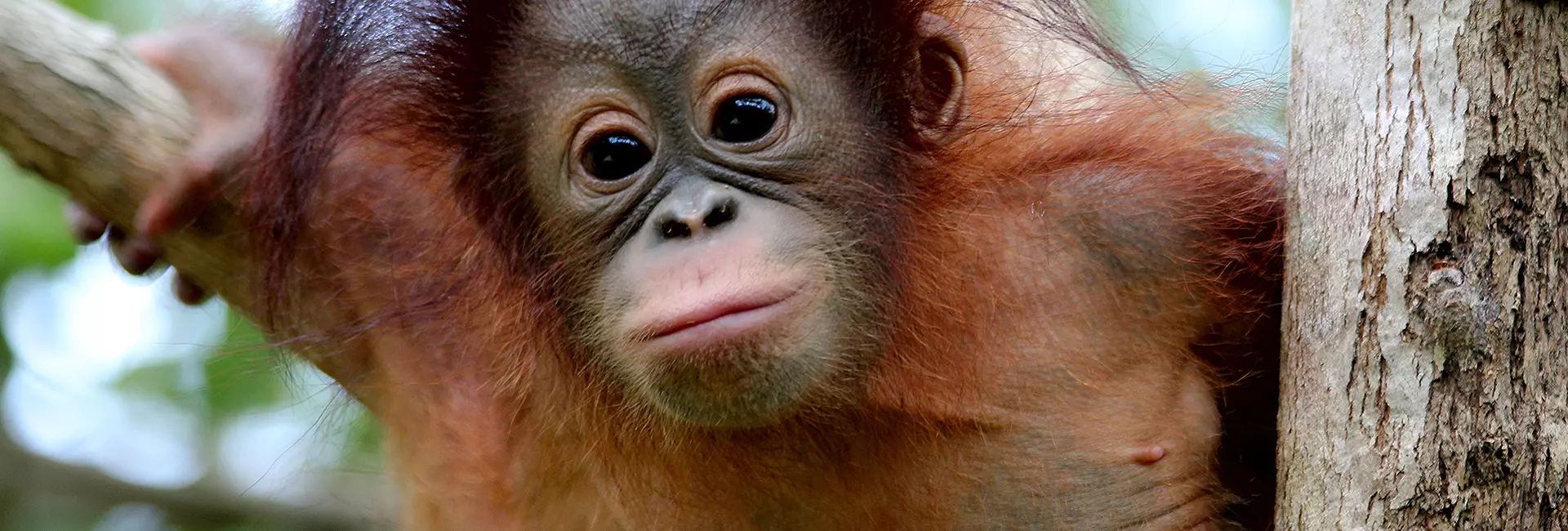
Visit The Orangutans In Borneo
Visit The Orangutans In Borneo
Despite being one of the most instantly-recognisable and endearing animals on the planet, orangutans are in fact critically endangered. There are now only around 60,000 orangutans remaining in the wild, and these great apes need our help now more than ever.
The idea of working with orangutans is something many of us dream of, and by becoming an orangutan volunteer in Borneo, you will be making a real difference to this incredible species while also marking an extraordinary experience off your bucket list. The Great Projects are proud to offer the opportunity for you to visit the orangutans in Borneo on any one of our many orangutan projects: spend time at the Samboja Lestari Orangutan Sanctuary to volunteer with our arboreal cousins; pay a visit to the world-famous IAR Sanctuary in Indonesian Borneo; or make a difference when visiting orangutans on the award-winning Great Orangutan Project.
Volunteering with orangutans will be a worthwhile and memorable experience for any conservationist - to make a difference to our closest relative in the natural world, visit Borneo and take part in an orangutan experience with The Great Projects.
Projects Do More
7 - 28 Nights from $1,074.00 $913.00
Volunteer with orangutans on this award-winning orangutan project at Matang Wildlife Centre in beautiful Borneo!
View project12 - 26 Nights from $2,019.00
Work on enrichment for 112 orangutans and 72 sun bears at the world-renowned Samboja Lestari Rescue Centre
View project6 Nights from $1,249.00
Travel with your family to Borneo, and see how you can aid orangutan conservation whilst meeting indigenous tribes-people on this exciting wildlife safari!
View project11 Nights from $2,086.00
Help to restore Borneo’s rainforest and provide a safe home for wild orangutans and pygmy elephants.
View project12 - 26 Nights from $1,614.00
Help to rehabilitate the largest number of rescued orangutans in the world by volunteering at this orangutan sanctuary – made famous by the TV show Orangutan Jungle School!
View projectTours See More
Visit The Orangutans In Borneo Information
Orangutans At A Glance
Endangered Status
Critically Endangered
Number remaining in the wild
Around 60,000
Endemic Region
Borneo And Sumatra







